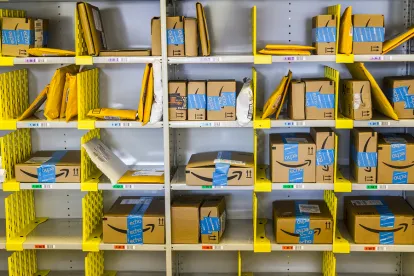Receiving a warning letter from the U.S. Food and Drug Administration (FDA) means that the agency has identified what it calls “violations of regulatory significance” and that you (as the recipient) need to take corrective actions or risk inviting some actual enforcement under the Food, Drug, and Cosmetic Act (FD&C Act), which could include injunctions, seizures, and criminal penalties. Because they are advisory in nature and otherwise releasable under the Freedom of Information Act, with appropriate redactions, FDA proactively posts warning letters on its website here. Accordingly, even when a company can quickly correct the cited violations and otherwise avoid more serious enforcement under the Act, warning letters can cause reputational damage and trigger breach of contract or other forms of business-related harms to the recipient.
Historically, FDA sends warning letters involving the production, sale, and distribution of unapproved drug products to the manufacturer or labeler of those products, with a request that they take immediate action to remove such products from the market. But a recent letter issued by FDA to the online retail giant Amazon.com signals that the agency may be adding new tools to its arsenal in the perpetual fight to protect U.S. consumers from adulterated, misbranded, and potentially unsafe products. It also highlights the fact that the FD&C Act broadly prohibits any actions that put unapproved products into the stream of commerce, reminding online fulfillment services and retailers alike that they have independent responsibilities to ensure that FDA-regulated products they offer comply with all applicable federal laws.
The August 4, 2022 warning letter issued to Amazon states that FDA was able to purchase unapproved mole and skin tag remover drug products on the online platform, and that those products were then “introduced or delivered for introduction into interstate commerce by Amazon via your Fulfillment by Amazon service.” The agency’s press announcement related to this recent action – which also included two warning letters issued to marketers of such unapproved mole and skin tag remover products – emphasized that FDA “works to identify threats to public health and stop these products from reaching our communities [including] where online retailers like Amazon are involved in the interstate sale of unapproved drug products.”
Some of you may be wondering how Amazon could be responsible for unapproved drug products sold by independent businesses that merely use the online platform to market their products. The key facts that led to this FDA missive were not that the products could be purchased via the Amazon.com site, but rather that Amazon warehouses the products on behalf of the sellers, and then packs and ships them directly to the purchasing consumer after an order is placed. Those actions mean that Amazon – not the independent seller – is the entity “responsible for introducing, delivering, or causing the introduction or delivery into interstate commerce” of products that are considered under the FD&C Act to be unapproved new drugs.
Query, however, whether the sellers in question would not be able to market those products to consumers using other channels even if Amazon cracked down on their ability to offer unapproved products through the Amazon.com marketplace. We also wonder what kinds of controls and systems FDA would consider sufficient for a fulfillment service like the one made available by Amazon in order to prevent the introduction of such products into commerce. Would written certifications of compliance with laws on record from every seller be enough? We know that Amazon employs individuals who perform informal regulatory reviews of certain device products and demand assurance that such products comply with applicable FDA regulations, but would Amazon have to assure FDA that all potentially regulated products would receive such a review?
These are undoubtedly going to be major topics of negotiation and discussion between the retail giant and FDA as a result of the recent warning letter, which concludes with the request that Amazon include in its response “an explanation of each step being taken to prevent the recurrence of violations.” Should any additional news emerge regarding FDA’s expectations for this kind of business, we will keep you posted!





 />i
/>i
